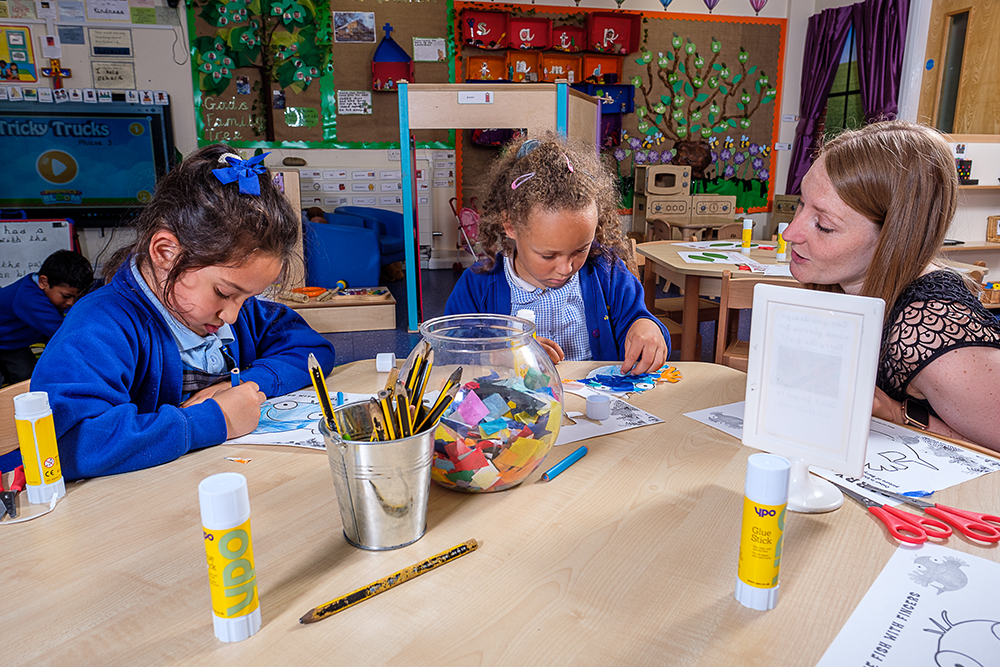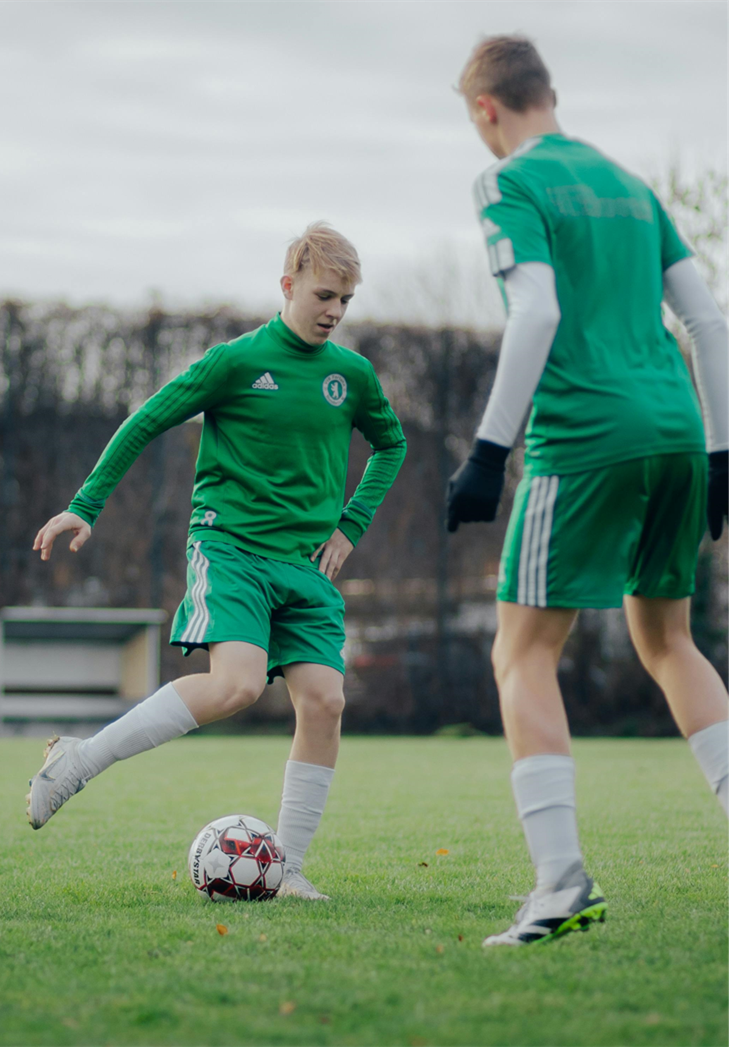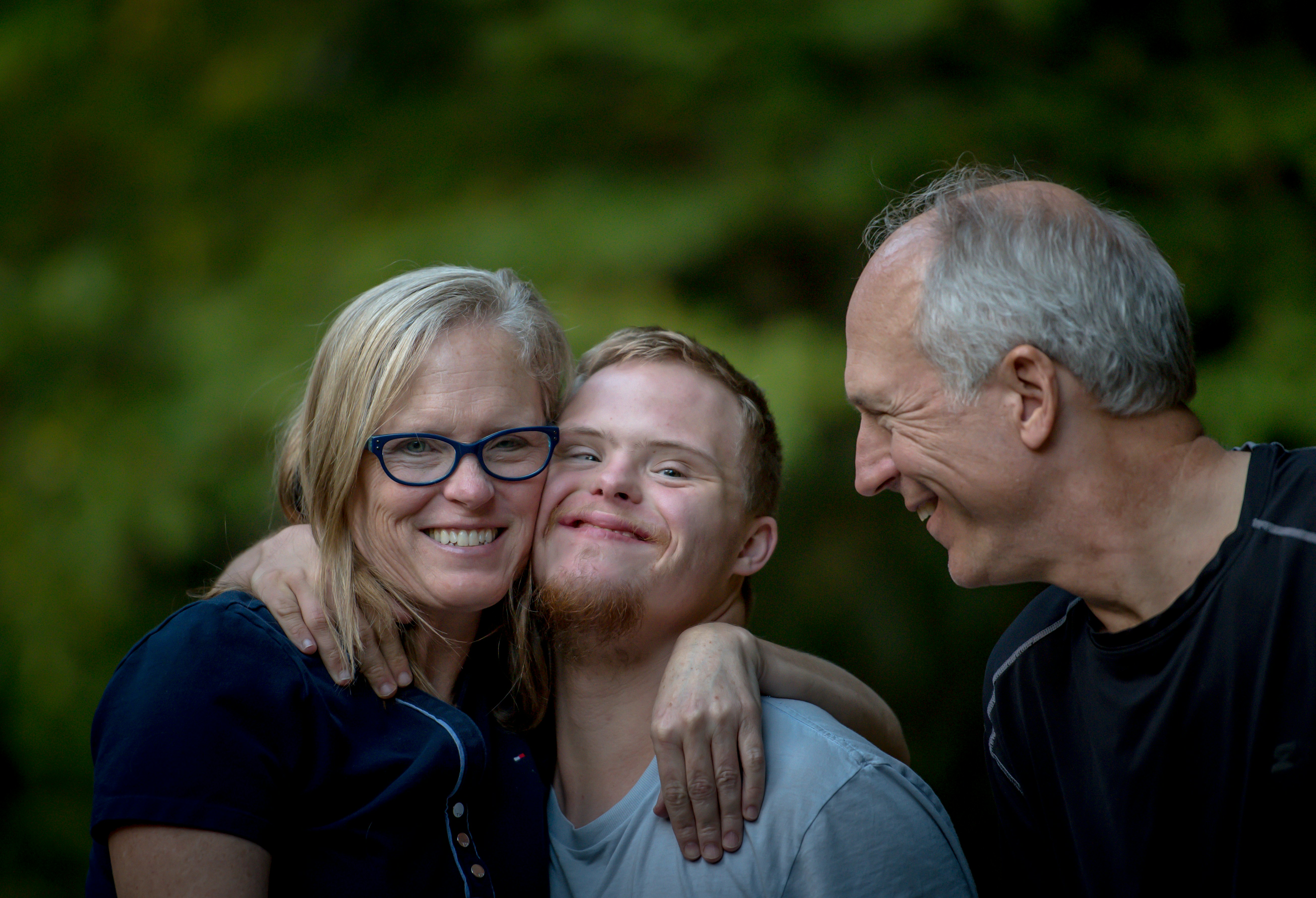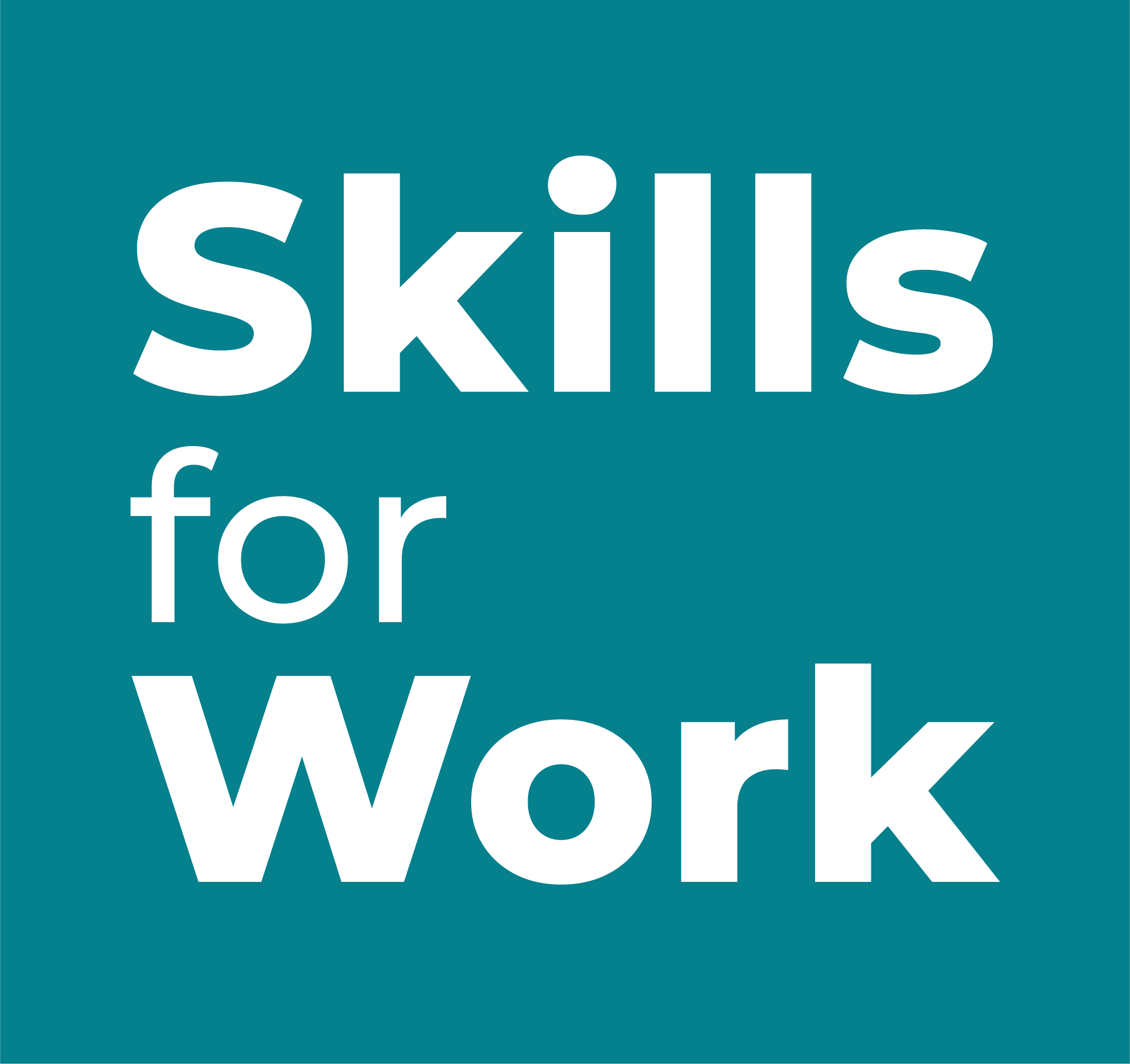
Parents & Carers
As a parent, guardian or caregiver, you have a crucial role in helping your child to make informed decisions about their career choices.
You can provide support by:
- Setting high expectations for your child's education and future career possibilities
- Developing a shared understanding of the current and future career options
- Building networks for your child
- Challenging any beliefs that may hinder your child's decision-making process
- Asking for help through your child’s school, local college, or learning provider to find the information you need

Primary School Career-Related Learning
Primary school is the perfect time for children to start career planning. Early career planning is all about self-discovery, helping children make sense of the world around them and starting to think about the world of work.
As children start their learning journey, they begin to form ideas about their future. It is important to let children know that nothing is impossible and that any career is open to them.
Primary school children are encouraged to think about the world of work, meet with different employers and role models from different industries, be inspired by potential careers, and challenge workplace stereotypes.
As a parent, you can help by:
- Encouraging your child to explore different activities and interests, develop skills in areas they are interested in, and discover passions
- Helping your child start to develop life skills: managing pocket money, helping out at home, being creative
- Challenging the stereotypes you see, identify your biases and filters, and recognise that these could be limiting
- Introducing them to various sectors and careers through books and videos, visits to workplaces, and talking to them about local businesses
- Encouraging your child to ask about careers and the jobs people do
- Helping your child set goals and aspirations for the future

Secondary School Children in Years 7, 8 and 9
The transition to high school and the first three years, help young people to explore different subjects, and introduce them to career sectors pathways and jobs. It is a time when they can reflect on who they are, explore interests and hobbies and develop skills.
At home encourage your child to:
- Get involved in new hobbies, and clubs
- Consider their likes and dislikes
- Be open to new career ideas and concepts and talk about these at home
- In lessons, think about the topics they study and how they might relate to the world of work and potential careers
- Research volunteering opportunities
- Start to think about subjects they would like to study for GCSE (what subjects interest them and why?, what options does the school offer that are available to them?)
- Think about careers and the subjects that will help them achieve their goals
- Explore SkillsHouse sector guides or visit the Future Goals website
- Ultimately, encourage them to do the best they can in their studies
If your child does not have a career in mind at this stage, this is okay.

Secondary School Years 10 and 11
Starting GCSEs is an important time for your child. They will start to have a number of asks upon their time and be expected to make key decisions about their post-16 choices. Schools will have a plan to deliver learning experiences. GCSE Information | SkillsHouse Bradford
At home encourage your child to:
- Talk about their interests and plans
- Investigate different post-16 options and ensure those of interest are in their learning plan Choices at 16 | SkillsHouse Bradford
- Apply in good time for the Post 16 options that they are interested in
- Go with them to visit local career fairs and apprenticeship events
- Encourage them to request time with a careers professional to help them think through their options Career Options | SkillsHouse Bradford

Further Education 6th Form/College
All young people are now required by law to continue their education or training until they are 18. This means that by the age of 16, your child must decide what they want to study and where they want to study it.
If your child is interested in studying A Levels, Foundation T Levels/T Levels, and other Level 3 courses, they will need to achieve at least 5 GCSEs at grade 4 or above, including Maths and English Language. Some subjects may require higher grades, so it's important to check college prospectuses for further information.
T levels and transition to T Levels.
A T level is a technical qualification offered in England, designed to provide students with the practical skills and knowledge needed for specific industries or career paths. T levels are equivalent to A levels and combine classroom learning with industry placements, giving students the opportunity to gain valuable work experience. The work experience is part of the course and not optional. They are aimed at students aged 16-19 and cover a wide range of subjects, including engineering, construction, digital, and health and science. T levels are an excellent option for students who prefer a more hands-on approach to learning and are interested in pursuing a technical or vocational career.
Local colleges offer programmes to help young people transition to T Levels. These transition programmes are designed to support young people in reaching the required level of study for T Level entry. Each college will have information on the courses they have available, and this information can change annually with the introduction of new courses.
Once your child successfully completes the transition programme, they can move on to a level 3 T programme. 16 years of age, your child must decide what to study and where and how to do it.
Apprenticeships
A young can apply for an apprenticeship Find an apprenticeship - GOV.UK (www.gov.uk) traineeship Guide to Traineeships (youthemployment.org.uk), or Part-time Education. If your child plans to work full-time for an employer, for themselves, or as a volunteer, they must either:
- spend the equivalent of one day a week working towards approved and nationally recognised qualifications
- work towards academic or vocational qualifications to help them to improve their future prospects, make their business a success, and/or meet the needs of their employer to the organisation with which they are a volunteer
- study in concentrated blocks for one or two weeks at a time or spread their learning over a longer period
- undertake a course in their workplace, at a local college, with a specialist training provider or online
Whatever your child wants to do in life, a good standard of education and training can increase their chances of success.
You can support your child by:
- Encouraging them to talk to you about their plans
- Attending open days for apprenticeships, career fairs, college, and university
- Read through any applications for courses or jobs
- Connect them to professional organisations and careers support, e.g. SkillsHouse, National Careers Service
- Support their choices, help them think through their decisions, weighing up the pros and cons.

Your Child with Additional Needs
Parents of children with additional needs may require further support when it comes to supporting their child’s careers planning. It can be daunting and complicated to find the information you need.
Consider that at post 16, the number of hours and days of study can vary. This may be a full-time course of 16 hours over 3 or 5 days - it will depend on the course, study programme.
By September, every young person who reaches the age of 16 or 17 years old in any given academic year is entitled to an offer of a suitable place to continue in education or training the following year. The duty is on the young person to apply to relevant education or training providers in order to obtain a place.
You can support your child by
- Talking to them about their needs, wants and career plans
- Seeking advice from your child’s school.
- Talking to your child’s school about the careers programme they offer
- If your child has an educational health care plan, check this updated to reflect their choices and any support required to enable them to successfully transition from GCSE to Post 16, from Post 16 into work or further study
- Connecting with services that offer support for parents - they have professionals and other parents that will be able to guide you through your journey. Bradford Local Offer website is a good place to start to research local agencies that can be contacted for support
- Helping your child prepare for their next steps (for example, some of the opportunities for young people with special needs require a young person to travel independently, so travel training may need to start early to build up confidence and skills needed)

Careers Education, Information, Advice and Guidance (CEIAG)
IAG provision can be delivered through various ways, including schools, colleges, online platforms and community organisations. It aims to enable children and young people to make well-informed decisions about their future. As a parent you can support your child in accessing IAG provision by encouraging them to explore their interests, seek advice from professionals, and use available resources to make informed decisions about their education and career paths.
Your child will be provided with Information, Advice, and Guidance (IAG) as below:
- Information: IAG provision includes providing your child with accurate and up-to-date information about various education and training options, career pathways, job opportunities, and the skills required in different industries. Your child should receive IAG support in the school they attend
- Advice: It involves offering personalised advice to individuals based on their interests, skills, and aspirations. This advice may include guidance on choosing the right courses, training programmes, or career paths that align with their goals
- Guidance: Guidance refers to the ongoing support provided to your child to help them navigate their educational and career journeys. This may involve helping individuals set goals, develop action plans, and overcome any barriers they may face in achieving their aspirations
It is a school's responsibility to provide career guidance for young people from year 7 onwards. A career adviser will be available in your child's school. Career adviers are highly qualified professionals who help students make career decisions and can provide them with relevant local knowledge and skills to facilitate them to achieve their career goals.
By staying informed about IAG services and encouraging your children to take advantage of them, parents and carers can help young people to make informed choices about their future.
To get more information about IAG provision for your child, contact their school or college as appropriate. If they are not currently in education, SkillsHouse can help - get in touch with us HERE.

The Careers Interview
As part of the career education provided in schools, your child will have a careers interview. As a guide, all students should have at least one such interview by the age of 16 and the opportunity for a further interview by the age of 18, and these should be delivered by an appropriately qualified careers advisers.
This could be a one-to-one or a group interview that helps your child affirm their decisions before they make their post-16 choices.
The majority of schools provide a full comprehensive guidance interview for your child, which you will also be able to attend. This will cover the following:
- Building rapport and trust
- A detailed exploration of the students’ ideas, goals, and aspirations (explore interests, likes and dislikes, family influences, personal barriers, and work experience)
- Work with your child to explore their perception of their skills, abilities, attitude and what they may need to develop
- Explore careers information (including future job, learning, and training opportunities) to broaden learner horizons and inspire them about work
- Apply strategies to check levels of motivation, enthusiasm about their education and personal goals. Ensure your child understands the subjects and grades required for their career/future learning ideas
- Help your child to state their career and further learning goals
- Question and challenge their understanding and how realistic their aspirations are
- Understand the process of job search, writing a CV and going for interviews
- Develop and agree a plan of action and backup plan where necessary
To prepare for a career interview, your child should:
- Know about themselves- any specific likes, dislikes, interests, personal values, and lifestyles
- Consider what career interests they have - if unsure good starting points might be - working in an office or home, working outdoors, preferences for team or lone working etc.
- Know how they are progressing in education, and what qualifications they have
- Think about what sectors, pathways and/or job roles may be of interest, the qualifications they will need, and any back up plans
- Make a record of any volunteering or paid work they may have been involved in, clubs, school council etc.

Work Experience
Your child may be given the opportunity during curriculum time to access a work experience placement from age 14/Year 10 onwards if the school has timetabled this into the academic year.
Schools can provide a work placement for students as part of the curriculum to ensure they have the opportunity to engage with employers and to help them to be more prepared for adult life. It is important your child understands and makes the link between the world of work and the curriculum to help them succeed in their future careers.
What is a work experience placement?
“hands on tasks at an employer’s premises in which a student carries out a particular task or duty, or a range of tasks or duties, similar to those an employee would carry out but with the emphasis on the learning. Work Experience is usually carried out during curriculum time with the support of school and employer, the student’s legal status changes to that of an employee”.
What should my child expect from their work placement?
The employer should make arrangements and carry out some preparation for your child attending their work placement. The student should:
- be provided with a named supervisor
- receive a work placement induction and health & safety information i.e. Young Person Risk Assessment
- listen carefully to instructions and stick to all workplace rules and procedures during the placement
- must not be left on their own to work for sustained periods
- be given a time to take appropriate rest break(s) in accordance with their employer
- work at the pre-arranged address unless parental/school permission is provided to travel to another location for work purposes
- be given tasks that are suitable and appropriate for their age, ability, and limited knowledge of the workplace
- be given time to complete their reflective work experience diary and receive constructive feedback from their supervisor
- receive a monitoring visit or telephone call from the school to check on their welfare and how they are progressing in the workplace
To find out further information about your child’s work experience opportunity, please contact the Careers Lead or Work Experience Co-ordinator in school.

My Child Is Not In School or College (aged under 19)
Home-educated young people not in education, employment, or training can access careers support by contacting:
Explore career ideas with your child and help your child make decisions
- Encourage your child to complete activities where they can identify their interests, values and skills, and view suggested occupations to explore career pathways. This is a great way to begin your career conversation. Careers advice - job profiles, information and resources | National Careers Service
- Talk to friends and family, learn about their careers, and write a list of things you want or don’t want in your career.
- Take a look at Bradford CTE Sector pathways framework. Explore each sector. Find out what the sector-associated pathways are, then see if any career roles are of interest and make a note of them https://www.skillshouse.co.uk/learner/career-options/
- Encourage your child to explore and develop the eight Bradford Essential Skills - these are valuable skills employers seek in the workplace. Bradford Essential Skills include Creativity, Critical Thinking & Problem Solving, Communication & Collaboration, Flexibility & Adaptability, Initiative & Self Direction, Social & Cross-Cultural Skills.


